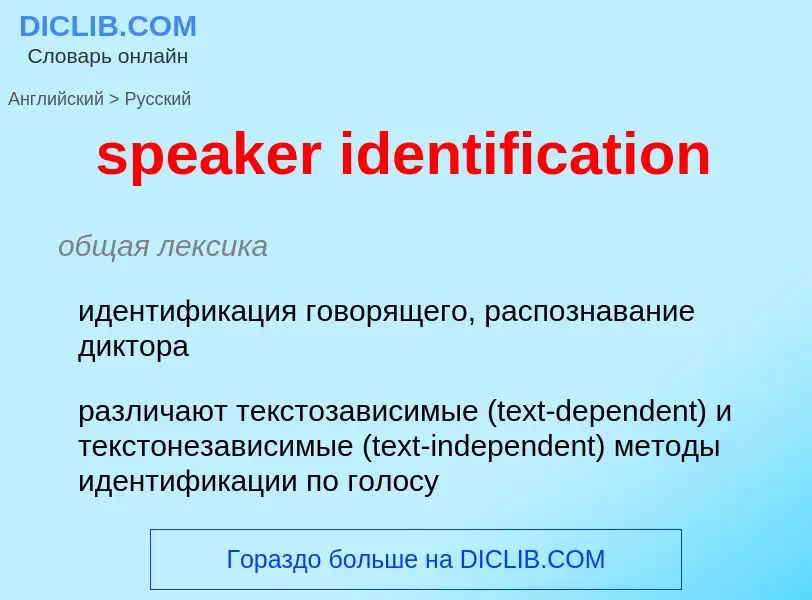Translation and analysis of words by ChatGPT artificial intelligence
On this page you can get a detailed analysis of a word or phrase, produced by the best artificial intelligence technology to date:
- how the word is used
- frequency of use
- it is used more often in oral or written speech
- word translation options
- usage examples (several phrases with translation)
- etymology
speaker identification - translation to English
общая лексика
идентификация говорящего, распознавание диктора
различают текстозависимые (text-dependent) и текстонезависимые (text-independent) методы идентификации по голосу
синоним
Смотрите также
Смотрите также
Definition
Wikipedia
Speaker recognition is the identification of a person from characteristics of voices. It is used to answer the question "Who is speaking?" The term voice recognition can refer to speaker recognition or speech recognition. Speaker verification (also called speaker authentication) contrasts with identification, and speaker recognition differs from speaker diarisation (recognizing when the same speaker is speaking).
Recognizing the speaker can simplify the task of translating speech in systems that have been trained on specific voices or it can be used to authenticate or verify the identity of a speaker as part of a security process. Speaker recognition has a history dating back some four decades as of 2019 and uses the acoustic features of speech that have been found to differ between individuals. These acoustic patterns reflect both anatomy and learned behavioral patterns.

